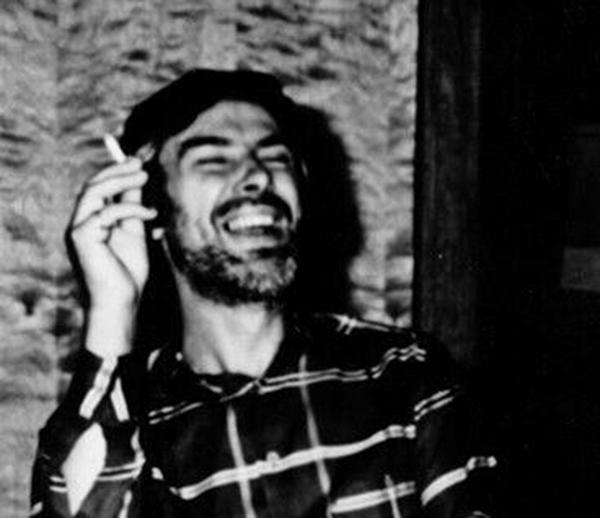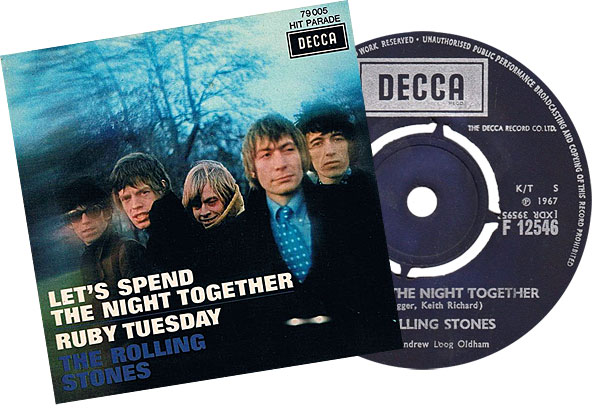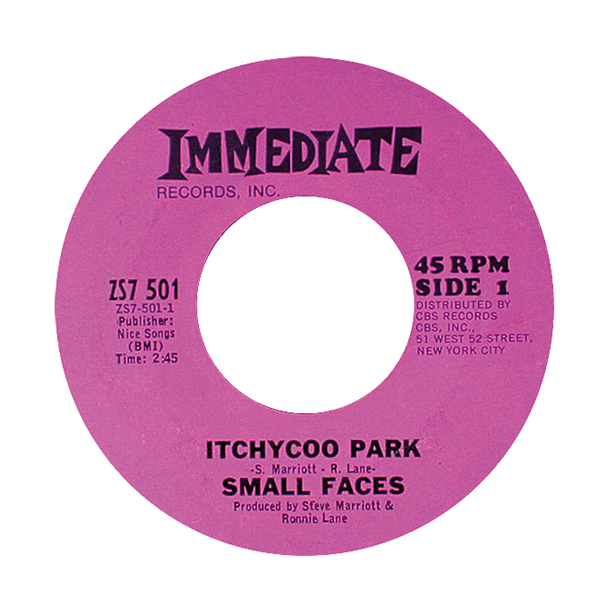Glyn Johns

It's a Sunday afternoon late in 1966 and we're in South London working overtime at Olympic Studios. The band have already done their stuff – the basic track was laid down a few weeks earlier at the RCA Records Studio in Hollywood. So today it's just us, the producer, his chauffeur, the engineer and the singer, who's busy behind that screen putting down vocal takes between hitting on a mighty spliff he's rolled to keep him in the zone.
All's going swimmingly until suddenly the door to the main studio creaks open and a couple of coppers wander in. They'd been patrolling their beat, tried the downstairs door out of habit, found it unlocked and, suspicious of some criminal activity, decided to investigate. The singer is oblivious to the potential danger to his lucrative career, unsighted by the screen. But the producer clocks the perilous situation and steps out of the control booth to greet the old Bill.
A Different Beat
While he embarks upon his well-practised, 'May I help you gentlemen?' speech, the engineer turns on the intercom, alerting the singer to the situation, affording him a precious few seconds to snuff out and stash before he pokes his head round the corner, to the star-struck amazement of the two boys in blue.
Now the real fun begins. The producer, happy all's back under control, invents this cock-and-bull story about how there's something missing in the song and he's just had this brilliant idea. Have the plod got their truncheons with them? Oh, good. May he borrow them? Well, thank you muchly chaps.
The said implements of brutal law enforcement are duly handed to the singer who, once the tapes are rolling, proceeds to bang them together to add extra percussion to the bridge. The cops are thrilled, the singer amused, the day, as they say, well and truly saved.
The producer, by the way, is Andrew Loog Oldham [HFN Oct '17], the singer Mick Jagger, the song 'Let's Spend The Night Together' and the engineer Glyn Johns, whose story we're about to unfold.

Abbey Road, Let It Be, Beggar's Banquet, Let It Bleed, Who's Next, A Nod's As Good As A Wink…, Ogdens' Nut Gone Flake, Led Zeppelin I, Harvest, Combat Rock, Stage Fright… these are just some of the landmark albums which have been brought into being under the expert aegis of Glyn Johns, the first freelance engineer in rock history and the first to pioneer the now business-established journey from button pusher and tape op to creative producer in full project control. Johns, whose brother Andy and son Ethan [HFN Jul '18] also excelled in making great records, found his way into studio work via IBC Studios in Portland Place where he worked on the early Kinks singles among many others at a time in the early 1960s when engineers wore lab coats and producers wore suits.
A New Phase
His sights were originally set on being a singer and he released a few pretty unremarkable singles before house-sharing with Ian Stewart, the founder member of The Rolling Stones who was sidelined by Andrew Loog Oldham for not looking the part but who remained a member of their set-up, playing great blues piano, for the rest of his days.
Johns used spare studio time to record the fledgling Stones before anyone else, but Oldham snatched them off to Decca, Johns, once over his chagrin, happy to engineer most of their fab early work.
'Satanic Majesties had been Mick's attempt to keep up with The Beatles...' Johns remembers, '…and failing dismally – so this was back to basics... By this point they were taking an immense amount of time to make a record, because almost nothing was written outside the studio. Keith would have a riff or a chord progression and he'd sit and play it with whoever else was around. That could go on for two or three days! It was unbelievably boring, actually, and in the end I stopped working with them because huge portions of my youth had been spent in a room waiting for them to get it together...'

Another of his clients were The Small Faces. One of the many singles Johns did with them was 'Itchycoo Park', which famously debuted phase-shifting, the psychedelic bit where the vocals and drums become all wonky and distorted. The technique, known to boffins as comb filtering, required three tape machines – two of them playing the same thing at different frequencies and the third one recording it.
A staff producer at Olympic Studios named George Chkiantz came up with it, and Johns utilised it to most groovy effect on 'Park'.



















































